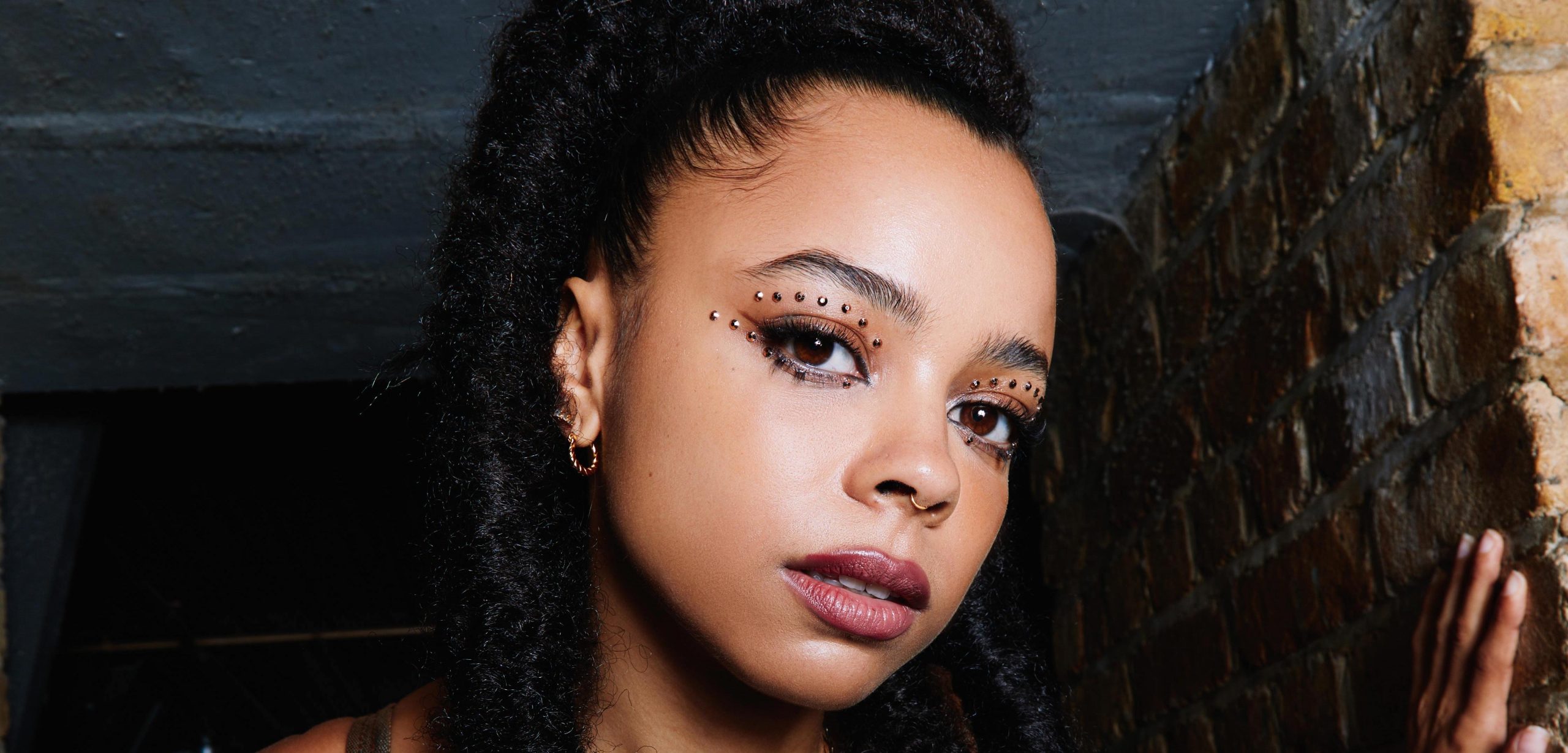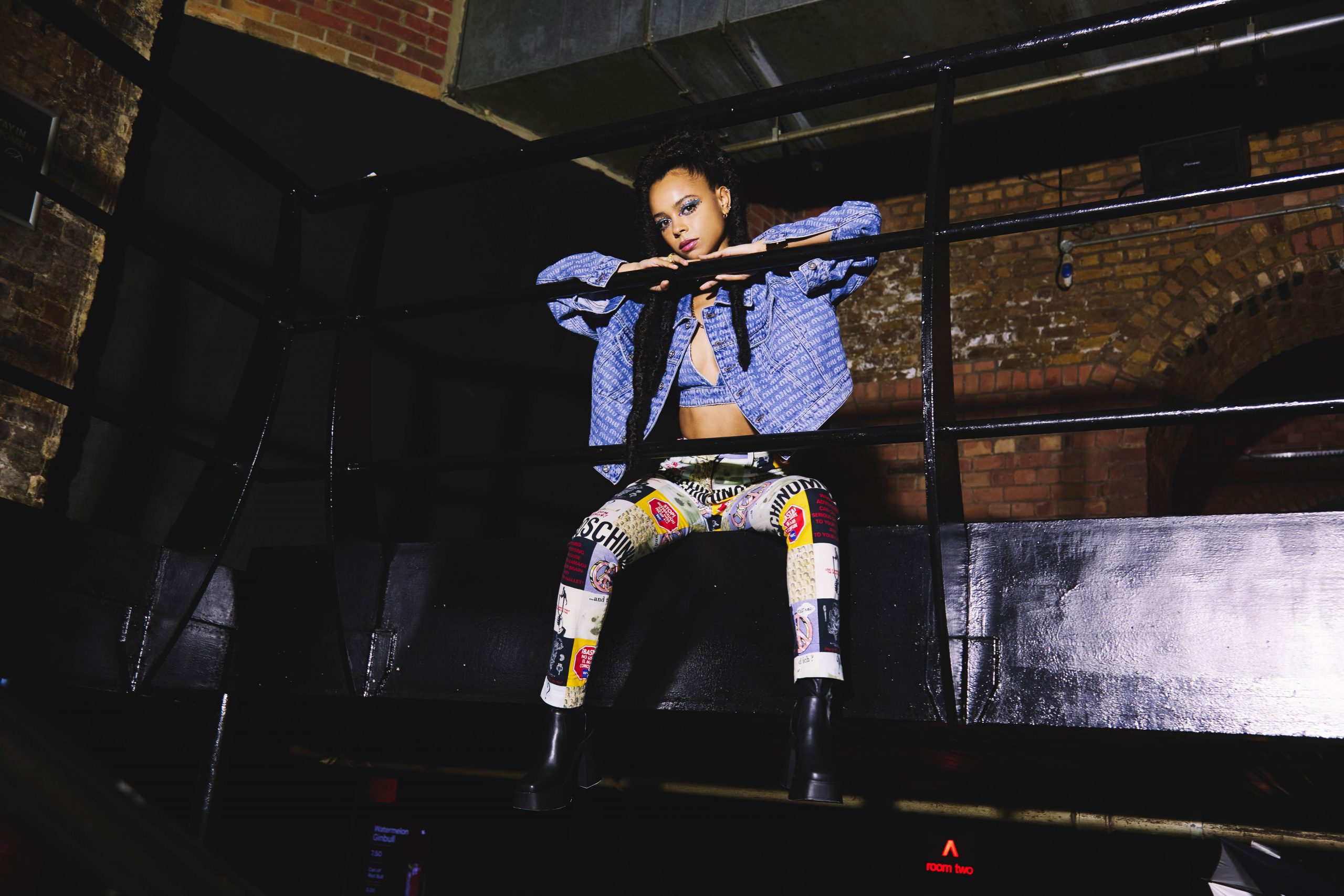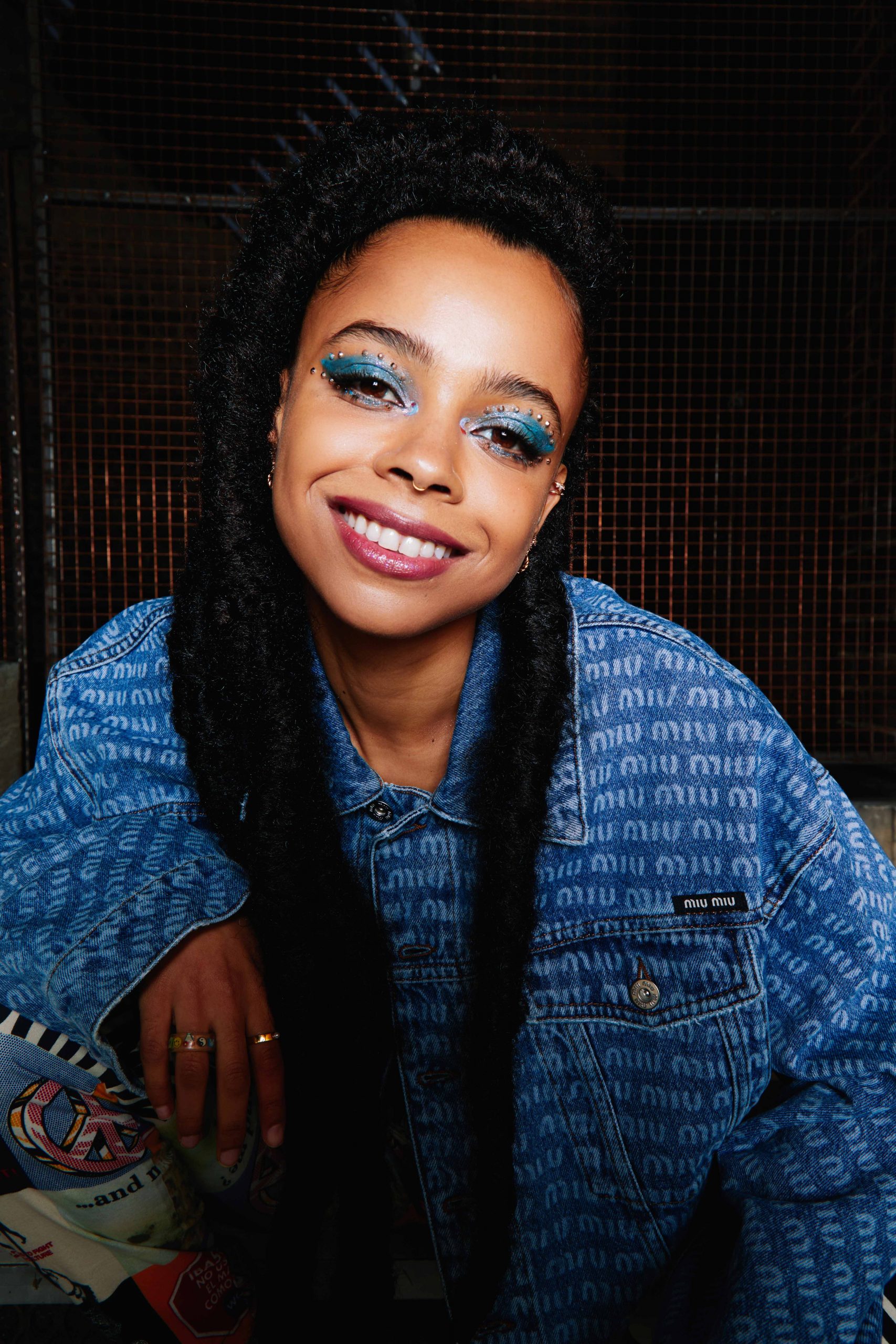
We caught up with London based DJ and producer TSHA to discuss the intensity of touring schedules, coping with anxiety, and finding happiness outside of music.
In the past few weeks alone, TSHA has spun like a whirlwind at gigs in Belgium, Switzerland, France, Malta and Ibiza, to name a few. Prior to that, she played dates at various cities in the States and, over the rest of summer, she’s splitting time between the UK, Europe and more dates Stateside.
It’s a whistle-stop schedule that’s not unusual for a touring DJ and producer, particularly during northern hemisphere festival season, but it’s relentless nevertheless, especially for someone who has previously described themselves as an introvert. Despite a genuine, megawatt grin that she flashes with ease, sometimes the pressures of life in the limelight can be taxing – and TSHA is refreshingly willing to admit it.
At the start of June, she posted on social media about a gig she headlined at AVA festival in Belfast. As it transpired, it also turned out to be her Boiler Room debut, though she didn’t know that when she initially agreed to play. “When I got the offer for AVA I didn’t realise it was for Boiler Room,” she writes on Instagram. “I found out much later as I don’t feel good about live streams after what happened at mixlab [sic].”

View this post on Instagram
She’s referring to her 2021 appearance at Mixmag’s The Lab LDN, which gathered some snore-inducing and less than complimentary commentary. The comments section has been disabled now, presumably for that reason, but reading people’s no-holds-barred, often non-musically centred opinions sent her confidence spiraling.
“Not sure il ever do a live stream again,” she continues on the subject of AVA. “And as dramatic as it sounds been contemplating whether or not I want to DJ anymore at all. I’m struggling with the ups and downs, comparing myself to others and just not feeling good enough no matter what I do.” When I read this post, I remember being surprised by its candour, a rarity on an airbrushed platform that notoriously celebrates perfection. And when I went back to search for it, I half expected it to have been deleted.
Yet to her credit, it’s still there; a solid slice of authenticity amid joyful gig pictures from around the globe. There’s no doubt it’s weird to celebrate someone for sharing insight into the ups and downs of their genuine feelings, but let’s be clear, the post-truth world we live in today doesn’t save much space for honesty.
TSHA though, rails against that expectation. And considering her rapid rise to stardom in the past few years, an ascent that historically demands gushing tributes about the job at every stage, that’s no mean feat. She’s been touted by her idol Bonobo; named as BBC Radio 1’s ‘Future Artist’ in 2021; smashed out an impressive Essential Mix; hosts her own show, Jackfruit Radio, on Apple Music; and has graced a Spotify billboard on New York’s Times Square, and yet she seems to remain rooted to reality.

Photo: Lily Craigen
The first time I met TSHA (real name Teisha Matthews), at the whynow x A Slice of Reality event back at the tail end of 2020, her club-ready EP Flowers had just hit a few million streams, despite the pandemic, and she was a considered, almost shy interviewee. Make no mistake, she had lots of interesting, astute things to say, and didn’t hold back when expressing them, but it was clear she came to life behind the decks and riffing alongside her mate, Effy: that was where she was most comfortable.
A few years later and we’re chatting over the phone: she’s in Portland, US for a gig, I’m in the UK, and I’m curious — as someone who frequently shares memes about existential angst — about how she’s coped with her increased level of fame.
“I mean, I have anxiety,” she says plainly. “So, I don’t know to be honest. I’m just on the ride. I’m just going with it for now. But things have been okay so far.” She admits that being visible isn’t what weighs on her mind so much as not messing up when she’s performing. “It’s more about worrying about doing a good job when I’m DJing,” she adds. “I get anxious because I want it to go well. Your brain goes into overdrive of all the different scenarios of how it could go wrong or people could not like it.” For someone who plays on an almost nightly basis, I figure that must be a significant amount of pressure, but she has tactics to try and deal with it. She prepares a lot, for one thing, and doesn’t turn up to gigs until a few minutes before so that pre-stage chat is kept to a minimum and nerves have less room to simmer.
Even so, she still regularly has to dance with untamed demons. “It just takes one gig to be a little bit underwhelming or a little bit not as good as the last gig, and then you spiral into thinking you’re shit, this is terrible, what am I doing,” she says. “Which is so silly because it’s only you that can judge it and there probably won’t be a single other person there thinking that other than you.” It’s the kind of often baseless self-criticism that anyone who’s suffered from anxiety, or a similar condition, can sympathise with.

Photo: Lily Craigen
But to listen to her shimmering productions, laden with groove and melodic hooks, you’d never be able to tell. She crafts with immense precision, somehow seeming to cut through the surrounding noise with tunes like ‘OnlyL’, released on Ninja Tune, one of last summer’s truly memorable dance floor anthems. Bursting with optimism, it showed a deft understanding of how people felt to be reunited after being kept apart for so long — she makes reading the crowd’s mood look effortless.
The same can be said for her sets, which are often deep dives into different genres, combining past and present with lowkey skill. “I like old school sounds,” she says. “I just think they’re better, that’s my personal preference. But I also like the ethos of where it comes from and what it stands for. So I think when you bring those sounds back, you kind of bring along the old school vibes of what dance music is actually about.”
She talks warmly about appealing to diverse crowds as a result. “If you play more Chicago house and funky stuff then you attract more people from different backgrounds,” she muses. “More queer people; more black people. So a mix of old and new is always the best combination for me.”
She made that clear with her recent fabric Presents release, which served as an ode to the acid house era and simultaneously brought a bunch of new names to the fore. “I wanted to highlight some artists that people might not have heard of,” she says. “So that it was a mix where people were really discovering something.”
And it’s the same approach she’s taken as a mentor for the Pete Tong DJ Academy, a new platform set up by the veteran DJ and Carl Cox to help aspiring DJs hone their skills. “I’m giving my view on the art of DJing rather than the technical side of things,” she explains. “It’s so fun to support new people. I like to give people opportunities if I can because there’s room for everybody.”
Completely self-taught, TSHA admits she wasn’t so lucky sourcing help on her own winding path, especially when she shelved hip-hop in favour of a more electronic focus. “Dance music can be a little closed off to new people,” she says. “I’ve been DJing for 10 years but when I first started, nobody would take me seriously. I definitely had a few people roll their eyes at me.” Bonobo featuring her track ‘Sacred’ on his own fabric Presents mix was a huge turning point. “It was wicked,” she says. “That helped bring a lot of attention and awareness to me and that’s why I wanted to do the same on my own fabric mix.”
And yet, it feels like recognition would have come to her at some point anyway. She pinpointed her goals very early on and developed a clear strategy for how to get there. “I put practical things in place to move things forward,” she says matter of factly. “I made a plan and nothing was going to get in the way. I was so sure in my head that this is how it would work, but it’s been crazy; everything has happened three times faster than I thought it would.”
In her own words, she has grafted to get to where she is now (I wonder if the T in TSHA stands for tenacious) but having reached those goals she set herself so long ago, she’s come to realise that success can be bittersweet. “I listened to a podcast once that was about happiness,” she concludes. “And basically it said that nothing ever feels as good as you think it’s going to. That’s why we’re always chasing because we think if we get this or that we’ll be really happy. But that’s not actually what happens.”

That’s not to say, of course, she’s not thankful for her position now, but there’s recognition that our fallibility as humans means we probably expend more energy in pursuit of things than in the stillness of appreciating what we already have. That, in turn can drive the baying voices of self-criticism ever louder.
Nevertheless, the cogs keep turning apace. The launch of her debut album, Capricorn Sun, is on the horizon, featuring the otherworldly Oumou Sangaré and UK duo NIMMO; the gigs and promotional obligations keep racking up. But in among work she’s making space to find little slices of peace. “I’m happiest at home making a roast dinner with my boyfriend and my dog,” she says, and you can tell she’s smiling. “We’re just talking and chilling and if it’s sunny out, we’ll go for a walk.”
A few weeks after her Boiler Room statement, she’s back at it posting shots from Glastonbury, Paris and the Montreux Jazz Festival, looking genuinely delighted to be back doing what she loves. But sandwiched in between them is a sun-drenched post with the caption ‘date night for once’, and you can’t help but think she’s navigating all this pretty well, considering there’s no map or compass. After all, life is just a chaotic mosaic of moments; of normality spliced with madness, and navigating that personally, let alone publicly, especially within an industry that can be mercilessly exploitative at times, is no easy task.
TSHA’s proven she has the determination and grit to manage it, but more importantly, for her own sake at least, that she’s learned to take her foot off the pedal when it’s needed. Long may that hard-earned harmony continue.




